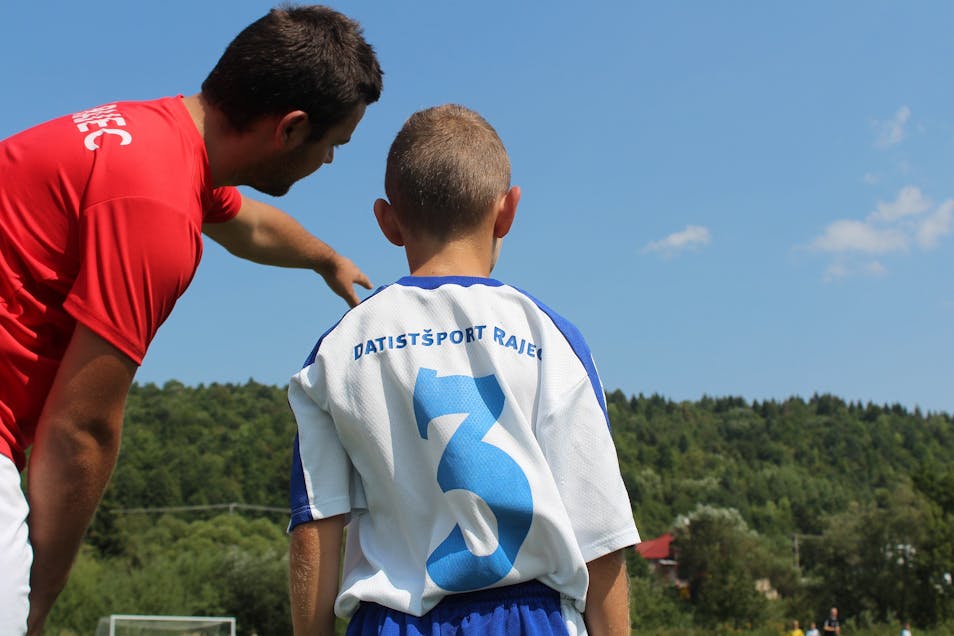
LIKE THIS?
Join my newsletter to keep updated on all my newest hints and tips.
IS INJURY HACKING THE FUTURE OF SPORTS COACHING?
5 - minute read
If you’re a sports or fitness coach who wants to help their clients and participants to avoid injuries but doesn’t want to specialise in injuries or become a therapist, this article is for you.
Before we can answer the question “Is Injury Hacking the Future of Sports Coaching?”, we must consider what injury hacking actually is.
According to dictionary.com, one of the many meanings of the word “hack” is “a strategy or technique for managing one’s time or activities more efficiently” and in the context of injuries, for the benefit of sports coaches, this means breaking injuries down into their simplest form, so that we can see the opportunities for more people to help, even if they don’t know the first thing about the injuries themselves.
You might be wondering how it’s possible for a coach to help if they don’t understand about injuries, but in reality, there are many situations when this exact approach works incredibly well.
Take an operating theatre for example. Inside of the operating theatre, there isn’t just one surgeon working alone. They have a team of people around them, all with different roles and skills that complement the job the surgeon is doing, and everyone works together for the benefit of the patient.
There’s the surgeon who’s doing the actual surgery itself, there’s an anaesthetist who makes sure the patient cannot feel the procedure, there’s scrub technicians and nurses who do other jobs such as bringing the patient to the operating theatre itself, tying gowns for people once they’ve scrubbed in, and passing the correct surgical instrument so the surgeon doesn’t have to take his/her eyes off the task in hand.
Each role has different tasks and responsibilities, and none of them could achieve the appropriate outcome by themselves, but by working together they can achieve amazing things.

But when it comes to the current approach to injuries, it’s almost like the surgeon and maybe one assistant are having to do all the work themselves because according to current industry guidelines, if coaches aren’t fully qualified in injury specialisms and maybe even therapy itself, then we’re not even allowed into the conversation about injuries, which is ridiculous.
In an operating theatre, does this the scrub technician have to know anything about surgery to be able to tie somebody’s gown or pass a scalpel? Of course not, and if the scrub technician wasn’t there to do that job, it would make the surgeon’s job much harder, which would mean that the patient would suffer.
But could the scrub technician learn how to become a surgeon or an anaesthetist if they wanted to? Of course, and their roles and responsibilities would change, the more skills they developed. And it’s the same with sports coaches when it comes to injuries.
Not all coaches need or want to know anything about treating injuries, just like not all coaches want to coach as a full-time job. And that’s fine, the point is, there are elements of injury prevention that we can ALL contribute to, with more opportunities available the further into coaching you want to go. For example, we can all observe behaviour and movement.
One of the most overlooked signs or elements of injury prevention is the clues that our clients’ (or participants) behaviour and movement give out before the injury becomes painful, which are huge indicators that a problem is coming.
All coaches, whatever their level of coaching, can observe those things when they know what to look for. If we can see these clues, we can start the intervention process much earlier, which means that any necessary treatment doesn’t take as long, or it might even be possible to avoid pain and treatment altogether. If nothing else, it stops small insignificant problems becoming bigger ones.
Does the coach need to know anything about injuries themselves when they’re looking for restrictions in movement and the associated behaviours that they bring? Absolutely not. But does the client benefit from these powers of observation? Absolutely.
Of course, this is just the first step. Once you have identified the non-painful joint restrictions that create movement and behaviour change, could you learn how to start getting those restricted joints moving again? Yes.
Could you then learn to identify and deal with the underpinning, non-painful factors are common across most sporting injuries? Of course.
Could you then learn some of the language, roles, responsibilities and desired outcomes of other professionals so you can understand how your coaching might complement them? Definitely.
That's why these are just some of the injury "hacks" that Injury Hackers across the world are learning with the Injury Hacking approach.


In 2017, UK Coaching estimated that there were 3 million active coaches in the UK. Can you imagine how different our healthcare system would be if all 3 million pairs of eyes were trained to identify potential injury problems before they developed?
And what if all those coaches knew how to remove those early problems by simply coaching warm ups and cool downs?
Can you imagine?
If we keep excluding non-specialist coaches from the injury conversation, we will simply continue this downward spiral into younger and younger people experiencing injuries. Not only will this damage the potential of those young people, but it will also continue to overwhelm and overload our healthcare systems.
So, let me pose the question one more time: Is injury hacking is the future of sports coaching? I whole heartedly believe so – and when we work together, sports coaches have the power to transform our injury management system forever.
mostmotion.com - All Rights Reserved | Copyright 2021
